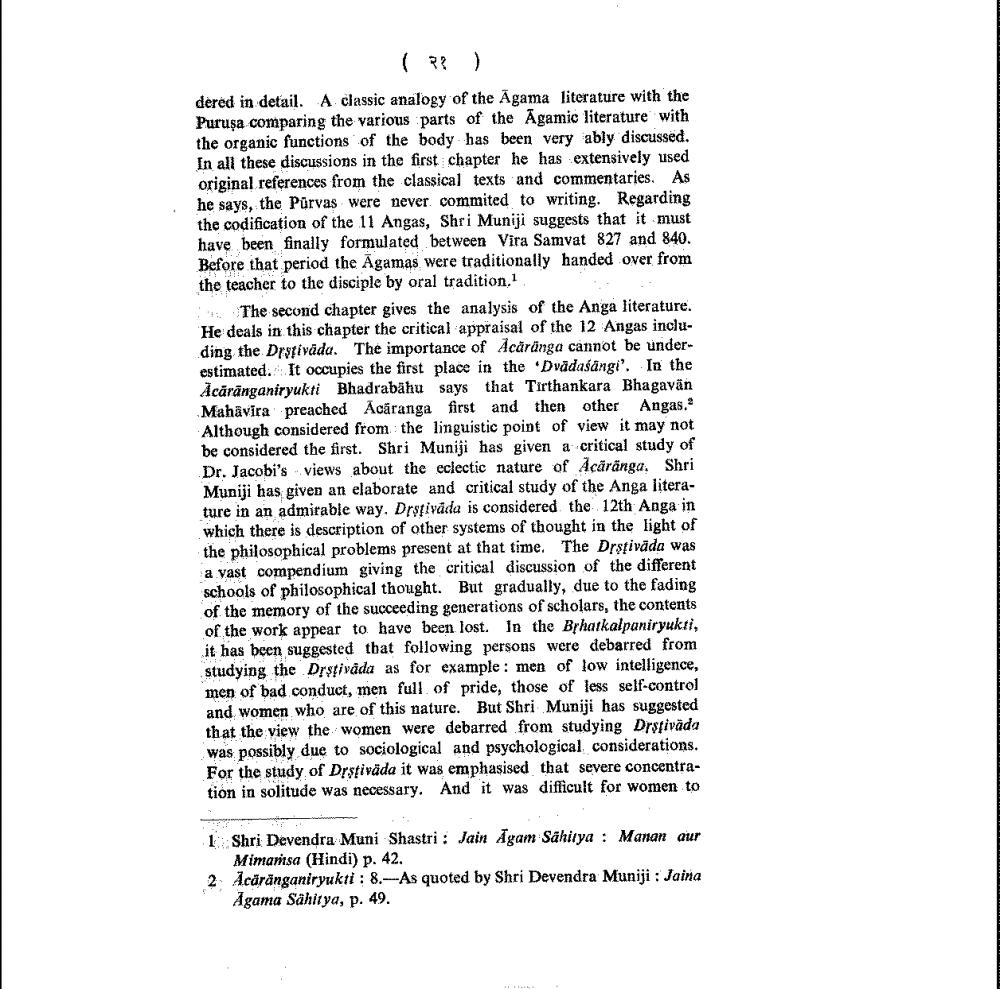________________
(PP) dered in detail. A classic analogy of the Agama literature with the Puruşa comparing the various parts of the Āgamic literature with the organic functions of the body has been very ably discussed. In all these discussions in the first chapter he has extensively used original references from the classical texts and commentaries. As he says, the Purvas were never commited to writing. Regarding the codification of the 11 Angas, Shri Muniji suggests that it must have been finally formulated between Vira Samvat 827 and 840. Before that period the Agamas were traditionally handed over from the teacher to the disciple by oral tradition,
The second chapter gives the analysis of the Anga literature. He deals in this chapter the critical appraisal of the 12 Angas including the Drstivāda. The importance of Acaränga cannot be underestimated. It occupies the first place in the 'Dvadasangi'. In the Acărānganiryukti Bhadrabahu says that Tirthankara Bhagavan Mahavira preached Acáranga first and then other Angas." Although considered from the linguistic point of view it may not be considered the first. Shri Muniji has given a critical study of Dr. Jacobi's views about the eclectic nature of Acäränga. Shri Muniji has given an elaborate and critical study of the Anga literature in an admirable way. Drstivada is considered the 12th Anga in which there is description of other systems of thought in the light of the philosophical problems present at that time. The Drstivāda was a vast compendium giving the critical discussion of the different schools of philosophical thought. But gradually, due to the fading of the memory of the succeeding generations of scholars, the contents of the work appear to have been lost. In the Brhaikalpaniryukli, it has been suggested that following persons were debarred from studying the Drstivada as for example: men of low intelligence, men of bad conduct, men full of pride, those of less self-control and women who are of this nature. But Shri Muniji has suggested that the view the women were debarred from studying Drstivada was possibly due to sociological and psychological considerations. For the study of Drstivāda it was emphasised that severe concentration in solitude was necessary. And it was difficult for women to
Shri Devendra Muni Shastri : Jain Agam Sahitya : Manan aur
Mimarisa (Hindi) p. 42. 2 Acäränganiryukti : 8.--As quoted by Shri Devendra Muniji : Jaina
Agama Sahitya, p. 49.




